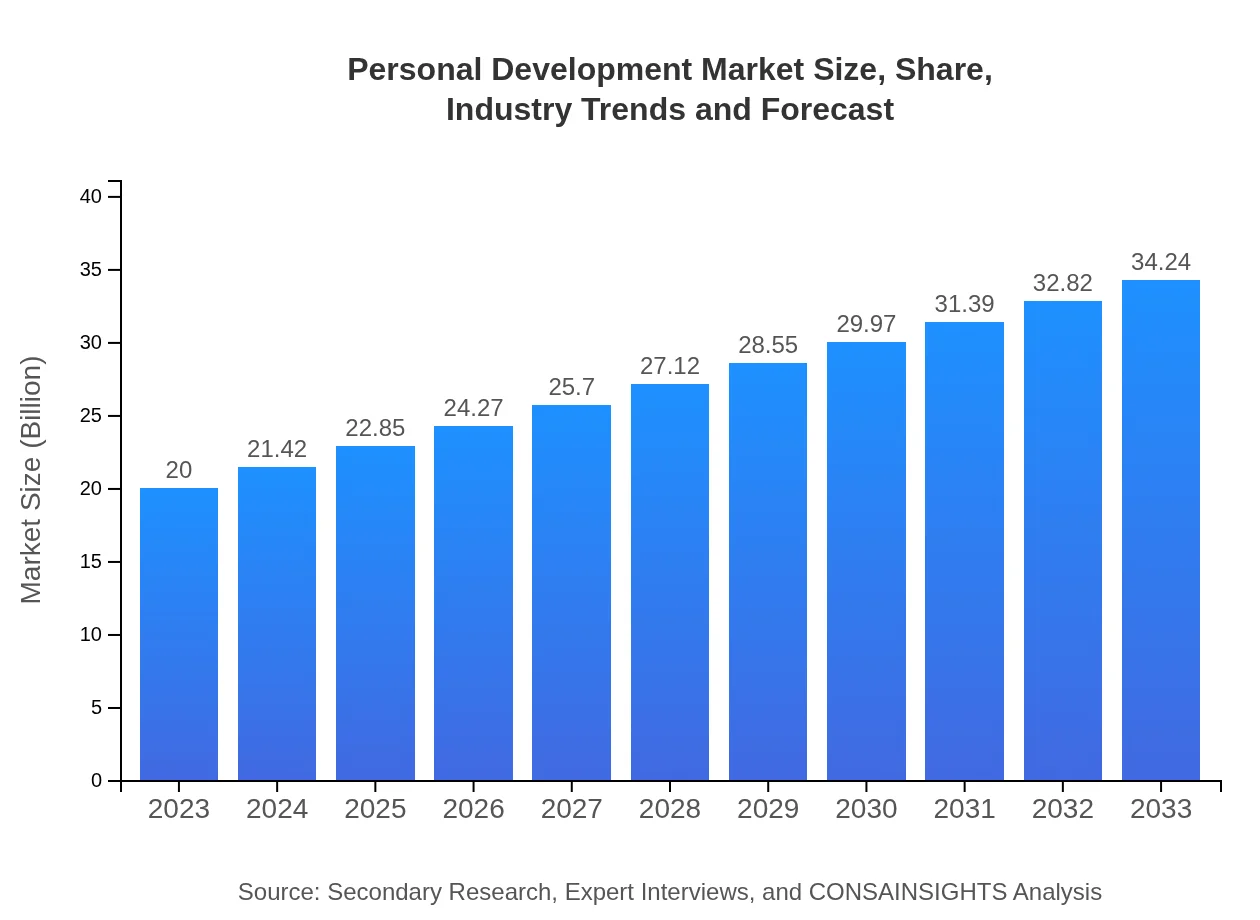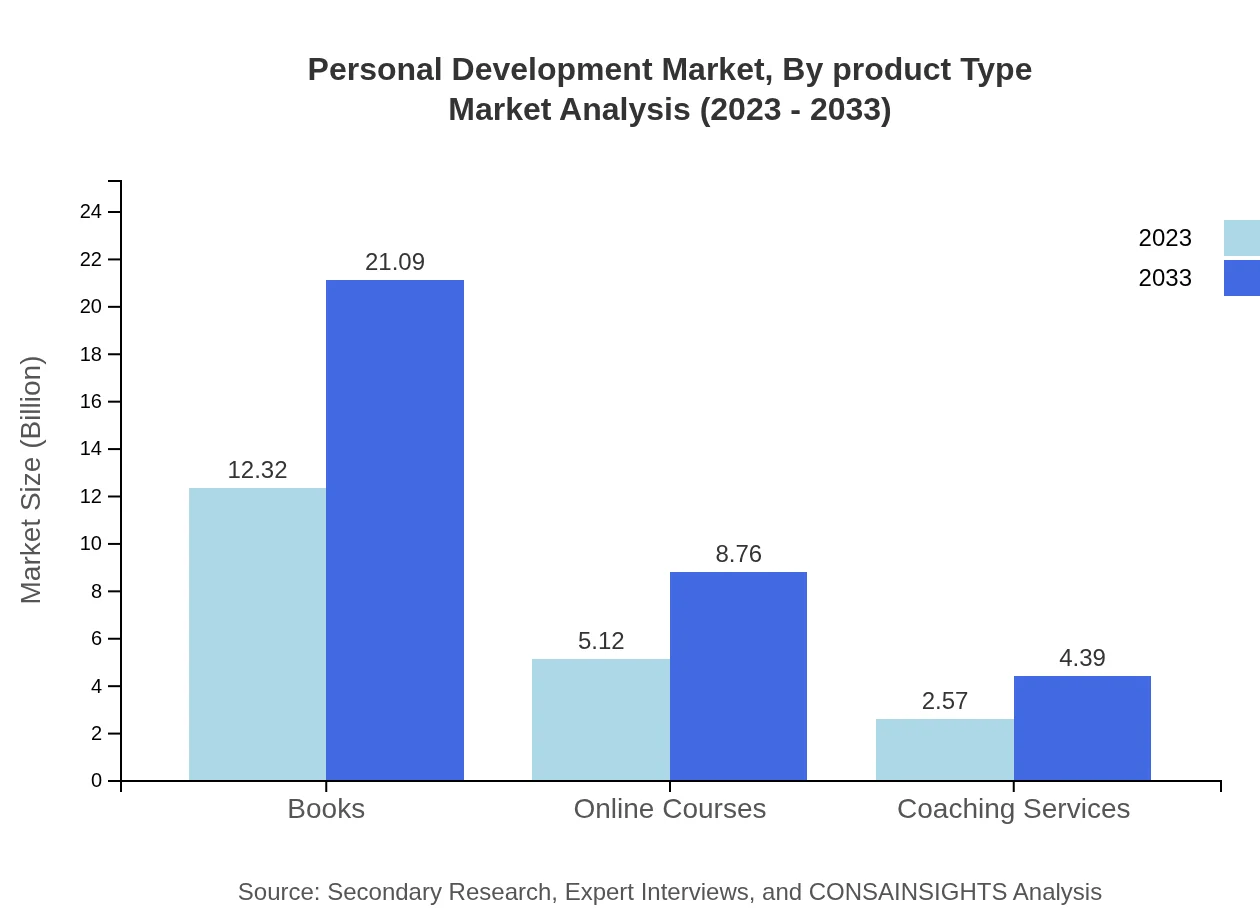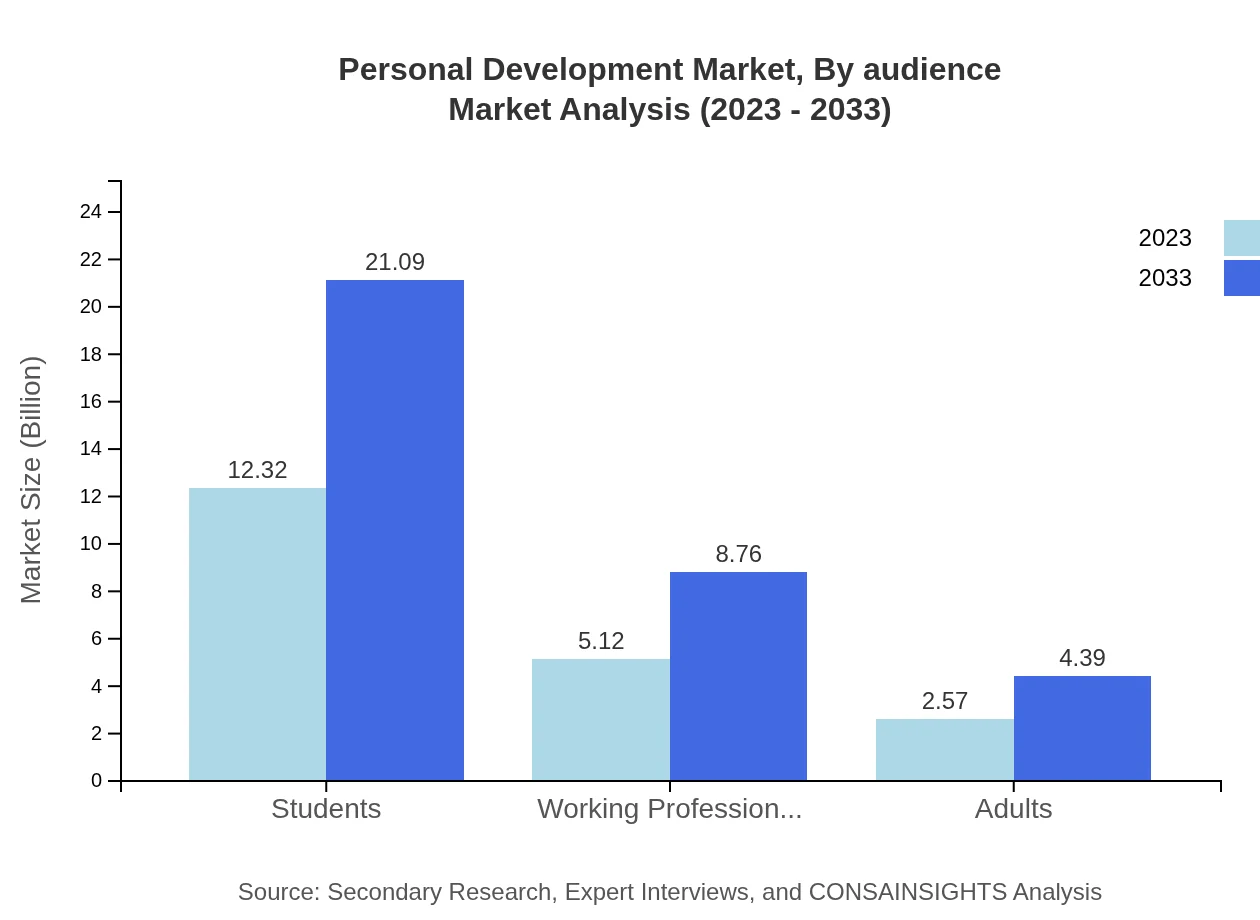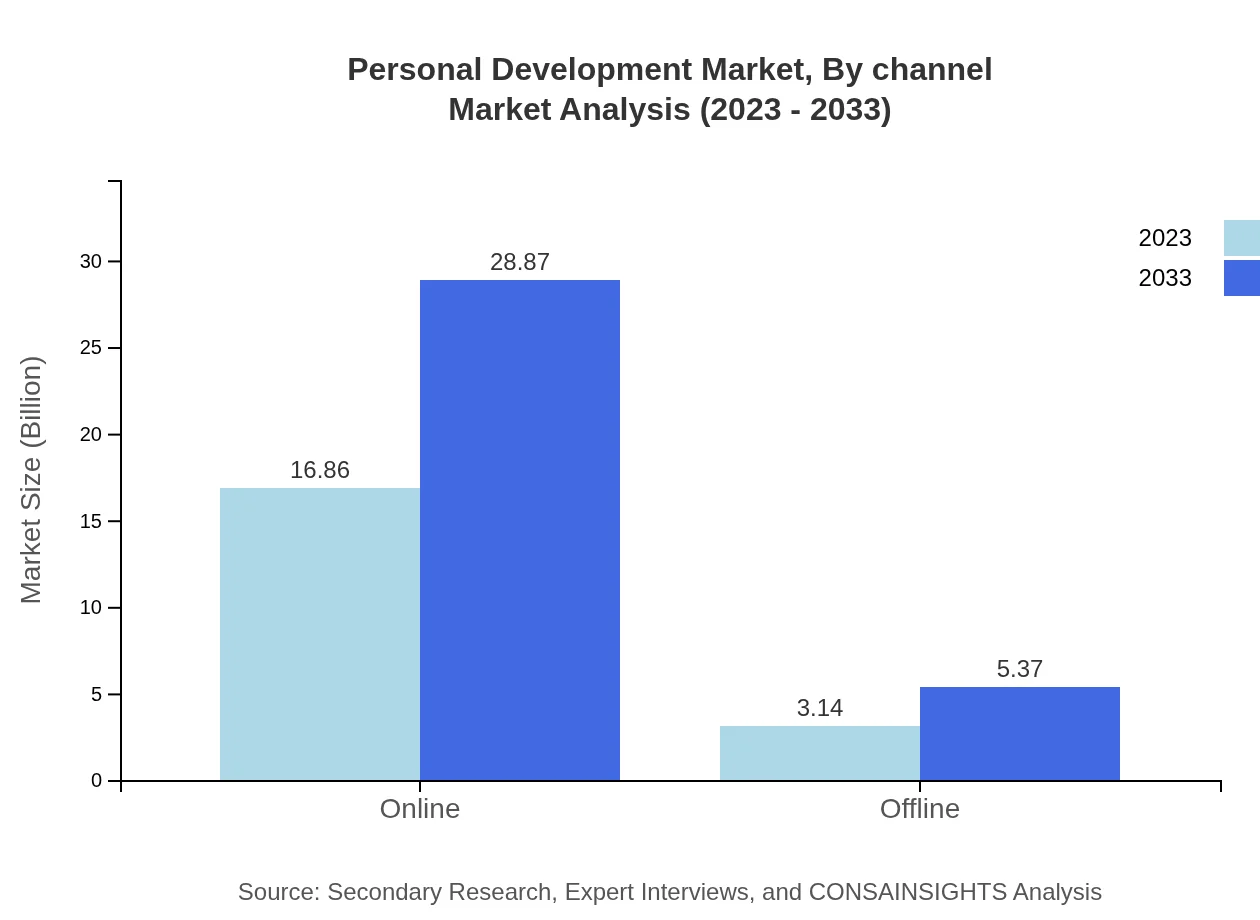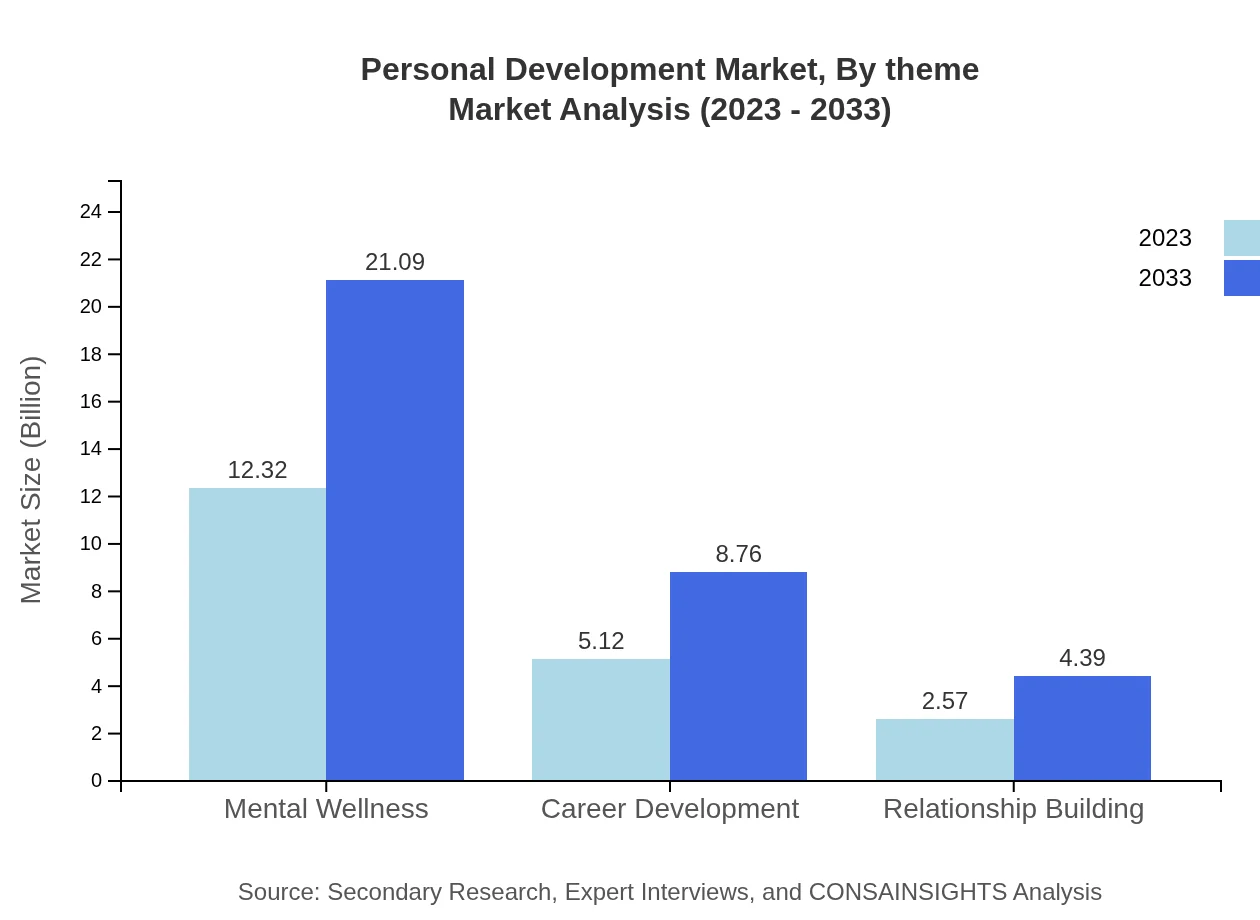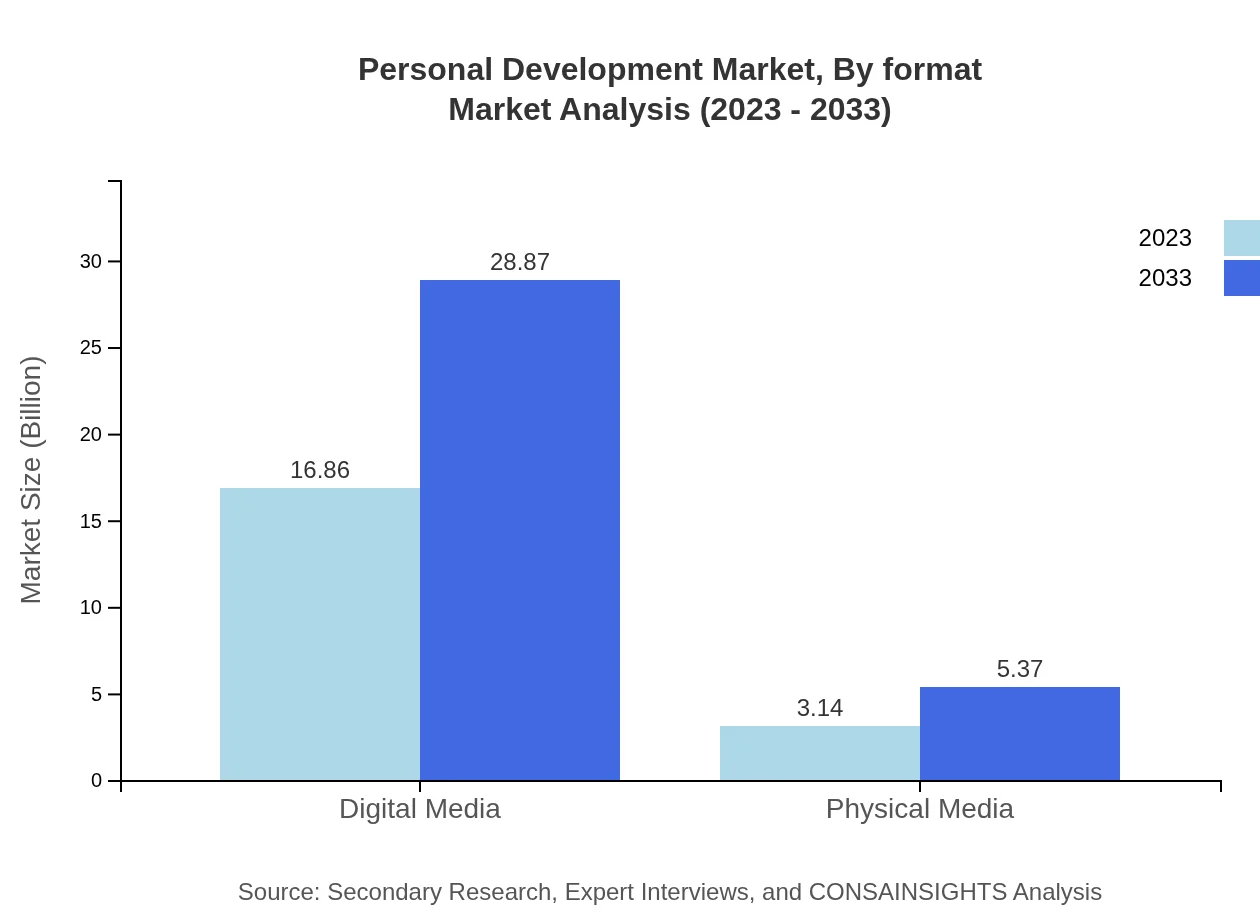Personal Development Market Report
Published Date: 31 January 2026 | Report Code: personal-development
Personal Development Market Size, Share, Industry Trends and Forecast to 2033
This report provides a comprehensive analysis of the Personal Development market, offering insights into market size, growth projections, and key trends from 2023 to 2033. It highlights regional performance and segmentation to equip stakeholders with actionable data for strategic decision-making.
| Metric | Value |
|---|---|
| Study Period | 2023 - 2033 |
| 2023 Market Size | $20.00 Billion |
| CAGR (2023-2033) | 5.4% |
| 2033 Market Size | $34.24 Billion |
| Top Companies | Mindvalley, Tony Robbins, Coursera, Udemy |
| Last Modified Date | 31 January 2026 |
Personal Development Market Overview
Customize Personal Development Market Report market research report
- ✔ Get in-depth analysis of Personal Development market size, growth, and forecasts.
- ✔ Understand Personal Development's regional dynamics and industry-specific trends.
- ✔ Identify potential applications, end-user demand, and growth segments in Personal Development
What is the Market Size & CAGR of Personal Development market in 2023?
Personal Development Industry Analysis
Personal Development Market Segmentation and Scope
Tell us your focus area and get a customized research report.
Personal Development Market Analysis Report by Region
Europe Personal Development Market Report:
In Europe, the market is currently valued at 6.78 billion USD, with a forecasted growth to 11.60 billion USD by 2033. The European market shows a strong preference for online courses and coaching services, influenced by advanced digital infrastructures across many countries.Asia Pacific Personal Development Market Report:
In 2023, the Asia Pacific market is valued at approximately 3.64 billion USD, expected to reach 6.24 billion USD by 2033. The growth is driven by a rising middle class, increased spending on self-improvement, and a growing number of online educational platforms.North America Personal Development Market Report:
North America, valued at 6.74 billion USD in 2023, is anticipated to reach 11.55 billion USD by 2033. The region is dominated by a high demand for mental wellness and career development programs, driven by increased consumer spending on personal growth.South America Personal Development Market Report:
The South American Personal Development market is around 1.35 billion USD in 2023, projected to grow to 2.31 billion USD by 2033. Increasing internet penetration and a shift towards online learning are key growth drivers in this region.Middle East & Africa Personal Development Market Report:
The Middle East and Africa market size stands at 1.49 billion USD in 2023, projected to grow to 2.55 billion USD by 2033. Growth is fueled by increasing awareness of mental health and self-improvement, alongside expanding digital access.Tell us your focus area and get a customized research report.
Personal Development Market Analysis By Product Type
The market is predominantly driven by digital media, which is valued at 16.86 billion USD in 2023 and is forecasted to grow to 28.87 billion USD by 2033. Mental wellness products continue to gain traction, expected to grow from 12.32 billion USD in 2023 to 21.09 billion USD by 2033, demonstrating significant consumer demand for supportive resources.
Personal Development Market Analysis By Audience
The audience segmentation reveals that students constitute the major market share at 61.58% in 2023, valued at 12.32 billion USD, while working professionals and adults also generate significant revenue, reinforcing the need for personal development resources suitable for diverse life stages.
Personal Development Market Analysis By Channel
The online channel dominates the distribution of personal development resources, representing an 84.31% market share in 2023. This trend is attributed to the increasing convenience and accessibility of online platforms, allowing users to engage with content from anywhere.
Personal Development Market Analysis By Theme
Themes such as mental wellness, career development, and relationship building capture significant consumer interest, with mental wellness alone anticipated to grow substantially due to heightened awareness and emphasis on mental health.
Personal Development Market Analysis By Format
Different formats of personal development resources, including online courses, workshops, and books, play complementary roles in the overall market. The growth of online courses, for instance, is reflective of the shift towards more flexible learning options that meet consumer expectations.
Personal Development Market Trends and Future Forecast
Tell us your focus area and get a customized research report.
Global Market Leaders and Top Companies in Personal Development Industry
Mindvalley:
A leading online personal growth platform offering courses and resources from renowned educators and thought leaders globally.Tony Robbins:
Tony Robbins is a well-known personal development coach recognized for his seminars and motivational tools that empower individuals to achieve their personal and professional goals.Coursera:
Coursera partners with universities and organizations to provide online courses that focus on personal and professional development.Udemy:
Udemy offers a wide array of courses where users can learn personal development skills at their pace, contributing to the accessibility of learning resources.We're grateful to work with incredible clients.









FAQs
What is the market size of personal Development?
The global personal development market is currently valued at approximately $20 billion, with a projected CAGR of 5.4% from 2023 to 2033, indicating a robust growth trajectory in this sector.
What are the key market players or companies in the personal Development industry?
Key players in the personal development market include renowned organizations and platforms such as Mindvalley, LinkedIn Learning, Udemy, Skillshare, and Coursera, each contributing unique offerings to support personal growth.
What are the primary factors driving the growth in the personal Development industry?
Growth is primarily driven by increasing awareness of mental wellness, a surge in online learning platforms, and the rising demand for career enhancement, particularly in the digital age, where continuous learning is crucial.
Which region is the fastest Growing in the personal Development?
The Asia Pacific region is poised for significant growth, expanding from a market size of $3.64 billion in 2023 to $6.24 billion by 2033, highlighting its emerging potential in personal development.
Does ConsaInsights provide customized market report data for the personal Development industry?
Yes, ConsaInsights offers tailored market report data, allowing businesses to acquire specific insights relevant to their interests and market strategies within the personal development sector.
What deliverables can I expect from this personal Development market research project?
Deliverables typically include comprehensive market analysis reports, key trends identification, competitive landscape overview, segmented growth insights, and strategic recommendations for market optimization.
What are the market trends of personal Development?
Current trends include a shift towards digital platforms for learning, increased focus on mental health, and the growing popularity of coaching services and online courses aimed at enhancing personal and professional skills.

